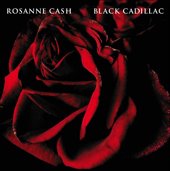
Rosanne Cash is tired of talking about "the movie." Of course, that would be "Walk the Line," the film about her parents and stepmother that sometimes threatens to overshadow the release of "Black Cadillac," an album containing some of the best work of her distinguished songbook.
Cash is a member of a special club. She's one of the rare few, sons and daughters of iconic performers who have managed to create singular careers that exist apart from the ties that could suffocate someone less determined and, at times, rebellious. For three decades, she has worked to write her own distinctive chapter in the Cash legacy.
"I was so determined to do this on my own and to be independent that I developed a kind of knee-jerk reaction to associating or exploiting my dad in any way," Cash said. "I was ambitious to become a better songwriter and musician. You make your own choices and see where it carries you."
But Cash, the eldest daughter of Johnny Cash and Vivian Liberto, couldn't sidestep the sad but rejuvenating inspiration that carried her through the two-year creative cycle resulting in "Black Cadillac." The album is dedicated to those three people: her father, her mother and her stepmother, June Carter Cash. All three died during the time in which the singer-songwriter was thinking about, writing and recording this emotionally charged set of new songs.
In her 30-year songwriting career, this is the closest Cash has come to a concept album. The 12-song musical memoir is not a tribute to the iconic figures in her life but rather a songwriter's way of working through death, grief and mourning. It is a revealing assessment of love and loss from a songwriter known for her "smart" songs.
"Rosanne was fearless," producer Bill Bottrell says. "She was able to take very personal content and make it sound profound."
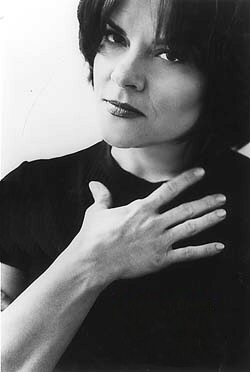 According to Cash, the songwriting process was different this time around -- but in only one way.
According to Cash, the songwriting process was different this time around -- but in only one way."This was only different in that the source material was more compelling and unavoidable," Cash said, in an interview from her New York home. "I didn't feel I had as much choice with these songs about whether or not to write them. There just wasn't any other subject matter for me at the time. It was very compelling material."
The 50-year-old Grammy-winner mined past memories and personal moments in an attempt to make sense of a world without these people who were so close to her through her entire life. She does this without sinking into self-pity.
Inspiration for the title song came from an iconic image from Cash's childhood. Her parents always drove Cadillacs; they were always black. "It was a theme running through my life, and it just seemed obvious to me that it would work as a metaphor for that song," she said. "Obviously, it's a stand-in for the last car that drives you away."
The touching "I Was Watching You" looks at the layers in her life, imagining her parents as a young married couple, her own childhood and, finally, the place where her parents are now watching over her. "House on the Lake" revisits the Cash family home that was recently sold.
Cash admits the emotional part of the process was difficult but the songwriting came easy.
"Bringing a sense of poetry and discipline and structure to these very enormous feelings was incredibly useful," Cash said. "I felt very fortunate that I was a songwriter during all of this. I was getting a lot of solace out of these songs."
Cash laughs when asked about her penchant for working in the studio with her current husband John Leventhal, and earlier in her career, her former husband Nashville singer-songwriter Rodney Crowell.
"That's how I get them to marry me," she said, with a mischievous laugh.
Both men have written songs with Cash and produced her studio work. Crowell, who married Cash in 1979, is responsible for steering her to 11 No. 1 hits on the Billboard country charts in the '80s. The couple had three children together and became the reigning couple of Nashville's singer-songwriter community.
Leventhal and Cash live on New York's Lower West Side with their 7-year-old son Jake and several of her daughters. He produced 2004's "Rules of Travel," Cash's first album in seven years after recovering from a large polyp on a vocal cord, the result of a rare hormone-related condition.
On "Black Cadillac," Leventhal helmed six songs.
"Both John and Rodney are much more disciplined in the studio than I am," Cash said. "John's strength is that he is a multi-instrumentalist. He has access to arrangements and voicings that are very subtle and complex. And he can go as deep into that territory as you want."
But on "Black Cadillac," another man entered Cash's professional realm. Well-known producer Bottrell (Shelby Lynne, Sheryl Crow) was brought in to produce half of the album, including the title song.
Bottrell had no preconceptions about Cash and her musical leanings. For her part, Cash kept an open mind and was ready for what "a stranger" could bring to her music.
"Rosanne was in a very raw emotional time in her life," Bottrrell said. "And she brought that energy into the studio."
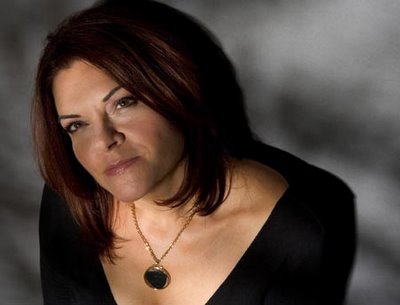 In the end, Cash hopes fans don't see "Black Cadillac" as a mere tribute to the Man in Black. She talks openly about her family, but she emphasizes that her job is not to make her father more famous. He is many things to many people; to her, he was simply her dad. Instead, she's much more interested in preserving her memories and making her own distinct contribution to the family songbook.
In the end, Cash hopes fans don't see "Black Cadillac" as a mere tribute to the Man in Black. She talks openly about her family, but she emphasizes that her job is not to make her father more famous. He is many things to many people; to her, he was simply her dad. Instead, she's much more interested in preserving her memories and making her own distinct contribution to the family songbook. "It's not a diary. It's not a tribute record," she said. "It's not about these people who died. It's about my experience of exploring the terrain of loss and grief. Obviously, I'm not the first person to lose someone so close. So I think the beauty of the record is that it's universal. And my hope is that people really do bring their own lives to it."
___________________________________________
THE ESSENTIAL COLLECTION
Rosanne Cash's contributions to the music world have been legion. Here are four must-have albums. --Mary Houlihan
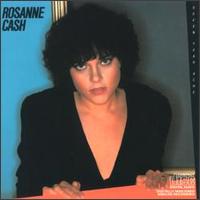 'SEVEN YEAR ACHE' (1981)
'SEVEN YEAR ACHE' (1981)Her breakthrough album still stands the test of time. Produced by former husband Rodney Crowell, it redefined "the Nashville sound" and ignited the crossover between folk, rock and country. Among the must-hear tracks: "Seven Year Ache" and "Blue Moon with a Heartache."
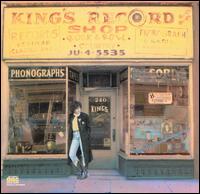 'KING'S RECORD SHOP' (1988)
'KING'S RECORD SHOP' (1988)Cash and Crowell continue their pioneering ways with this compelling mix of original songs and covers. But this disc finds Cash fearlessly mining more complex topics that defined her life and influenced her as an artist. Essential tracks: "Rosie Strikes Back," "Runaway Train" and "Tennessee Flat Top Box."
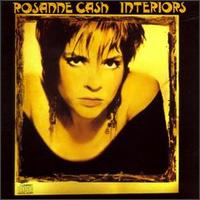 'INTERIORS' (1990)
'INTERIORS' (1990)Another breakthrough in that she wrote all the songs for this disc, her final effort for Columbia Nashville. On a gut-wrenching series of songs, she pulls no punches as she sadly chronicles the phases of her disintegrating marriage to Crowell. Must- hear cuts: "Dance With the Tiger," "Real Woman" and "I Want a Cure."
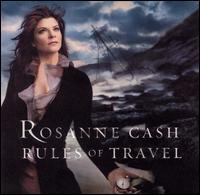 'RULES OF TRAVEL' (2003)
'RULES OF TRAVEL' (2003)After a seven-year absence from the studio, she returned with this thoughtful album of songs bursting with nuances of heartache, hope and happiness. In fine voice, she moves into the next phase of her career. A must-hear track: "September When It Comes," her only recorded duet with her father.
___________________________________________
 ROSANNE CASH HAS A FEW THINGS TO SAY
ROSANNE CASH HAS A FEW THINGS TO SAY She's the sibling who's out there, in the occasional limelight, writing songs like her dad did. So when he died, everyone turned to Rosanne to see what she had to say (or sing). Same thing with the movie "Walk the Line" -- what does Rosanne think? Here are some of her summations on these topics and more:
ON 'WALK THE LINE'
"It's basically a fictionalized version of my childhood and my parents' lives. It's not that I begrudge the fact that they made the film. It's just that they didn't make it for me and my sisters. I loved the movie "Ray," but I bet if you asked Ray Charles' kids, they would have a problem with it. It's a Hollywood movie -- very complex lives reduced to two hours."
ON LOSING HER PARENTS
"I don't think you lose them, you integrate them. If you're diligent, you assume their best qualities."
ON HER FATHER'S SONGWRITING
"He was very cinematic and had a great sense of American roots poetry. His images were riveting. There was no fat on anything he wrote. That was a great example for me. He was a great, great songwriter."
« ON HER FATHER'S LAST YEARS
"As often happens between parent and child, I took on more of a bossy role. [Laughs] You know, you shift the weight of authority a little bit. Toward the end, he was very frail. I sang a lot of songs to him in those last few years."
ON SOCIAL ACTIVISM
"I think I get this from the example my father provided. He let us know that you were personally responsible and socially responsible and you spoke up for what you believed in."
ON THE MERCHANDISING OF HER FATHER
"You can't imagine what's said no to. It's all carefully chosen. What you see out there is an infinitesimal fraction of what's been requested."
ON HER MEMOIR
"My editor periodically takes me to dinner and asks, 'How's it going?' I'm about halfway through and hope to have it done within the year. It covers my early years in Nashville, beginning in 1976."
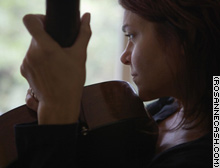

Um comentário:
Passei pra te deixar um beijo e dizer que to sempre por aqui.
Postar um comentário